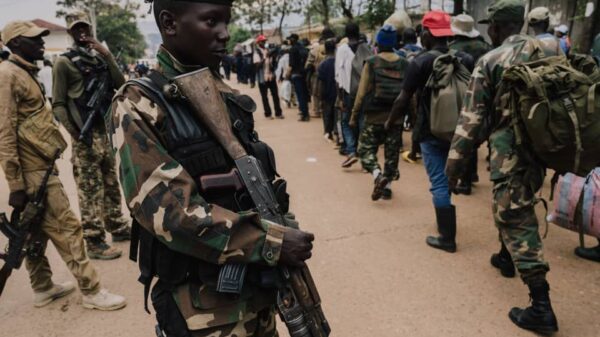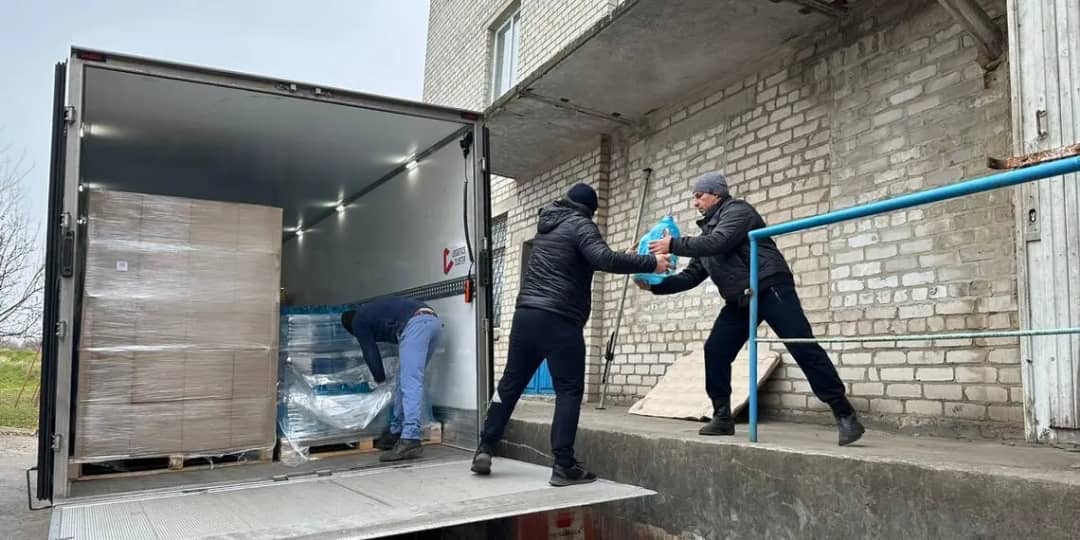Amid escalating fighting in northern Syria, the Under-Secretary-General for Humanitarian Affairs, Tom Fletcher, is calling on all sides to do more to protect civilians in the country.
In a social media post Fletcher noted that tens of thousands of people are on the move, critical services have been interrupted, and men, women and children are fearing for their safety.
The fighting has also disrupted humanitarian assistance, with aid operations across parts of Aleppo, Idleb and Hama still largely suspended due to security concerns. OCHA stresses that aid personnel, facilities and assets must be protected.
Despite the challenges, humanitarians are mobilizing to assess people’s needs amid the latest escalation and to expand the response whenever, wherever and however possible.
In parts of north-west Syria where people fleeing hostilities are arriving, the UN and partners are providing food, winter items, emergency water, sanitation and hygiene services, among other assistance, to reception centres hosting those newly displaced.
OCHA also stresses once again that repeated evacuation orders, which are now in effect for about 80 per cent of Gaza, leave civilians exposed to the dangers of hostilities and deprived of access to essential services.
For nearly two months, North Gaza Governorate has been under a tightening siege, leaving between 65,000 and 75,000 people without access to food, water, electricity or reliable health care, as mass casualty incidents continue.
Humanitarian partners report that the entire population of Gaza needs humanitarian assistance, including more than 58,000 people with disabilities who face further challenges in accessing food.
In the south, some people are skipping meals and searching through trash to find food or resorting to desperate measures, including early marriage or child labor.
Despite the catastrophic situation, OCHA warns that humanitarian access continues to be obstructed. In November, out of 578 planned aid movements across Gaza that require coordination with Israeli authorities, only 41 per cent were facilitated. More than a third were denied outright, and the rest were either impeded or cancelled due to security and logistical challenges.
The 578 planned aid movements last month included 132 to reach areas north of Wadi Gaza, including both North Gaza and Gaza governorates. Of these 132 planned missions, only 26 per cent were facilitated by the Israeli authorities. More than 40 per cent were denied outright, nearly a quarter were impeded, and the rest were cancelled.
Aid missions to North Gaza Governorate were particularly disrupted, especially those seeking to reach besieged areas of Jabalya, Beit Lahiya and Beit Hanoun.
Once again, OCHA underscores that civilians must be able to receive the humanitarian assistance they need.
Whether they move or stay, they must be protected, and those who flee must be allowed to return as soon as circumstances allow.
In Lebanon,
OCHA reports that the UN and partners continue to closely monitor population movements in Lebanon and are rapidly adjusting their assistance to address the urgent humanitarian needs across the country.
OCHA says that access to essential services – including healthcare, water and education – remains critically limited. We continue to support returnees, displaced people, host communities and those who stayed behind.
On Dec 3, the World Food Programme delivered food and essential supplies to Tyre in South Lebanon Governorate.
To continue on Lebanon, eight senior emergency officials from the UN and non-governmental organizations wrapped up a regional visit, which included a two-day visit to Lebanon. They met with communities affected by the crisis, as well as with local and international humanitarian partners.
The directors also held discussions with the Prime Minister, senior Government officials and local authorities.
The group highlighted the urgent humanitarian needs and hoped that the ceasefire will allow people to rebuild their lives.
In addition to Lebanon, they also visited Egypt and Jordan, noting that the region is roiled by escalating emergencies.
This includes Syria, which is now seeing yet another wave of conflict in the north.
In Sudan the resident and Humanitarian Coordinator in Sudan, Clementine Nkweta-Salami, today expressed her grave concern over reports of shelling in and around the Zamzam camp near El Fasher.
Zamzam is the largest camp for internally displaced people and is home to more than half a million displaced people.
Nkweta-Salami said that it is now more than 232 days since the siege of El Fasher began, stressing the importance of protecting civilians.
Aid organizations have reported that Zamzam came under fire on 1 and 2 December, with at least five people having been killed and 18 others being injured.
Also in Chad the Emergency Relief Coordinator, Tom Fletcher, has allocated US$5 million from the Central Emergency Response Fund to support the humanitarian response for Sudanese refugees in Chad.
The new funding will support UN agencies and their partners in providing humanitarian assistance, including healthcare, water, food and shelter support to both Sudanese refugees and host communities in Chad.
Following an escalation of fighting in Darfur, the number of people fleeing Sudan to Chad has increased in September and October this year, with more than 70,000 newly displaced.
Since the start of the conflict in Sudan in April of last year, more than 700,000 people have fled to Chad.
The report from Ukraine, OCHA said that hostilities and attacks continue in front-line areas in Ukraine.
The regions of Kherson, Dnipro and Kharkiv were particularly affected yesterday and, according to authorities, a dozen civilians were killed or injured. Homes and civilian facilities, including a school, were also damaged or destroyed in the attacks.
Authorities also report that Ternopil City in the southwest of the country experienced a second attack in two days, targeting an energy facility and leaving part of the city without power. Humanitarian organizations distributed shelter materials to support people whose homes had been damaged.
The UN and partners continue to support people in front-line communities. Today, an inter-agency convoy delivered 20 tons of assistance to the Zaporizhzhia region in the southeast, including medical supplies, bottled water and hygiene items.




























